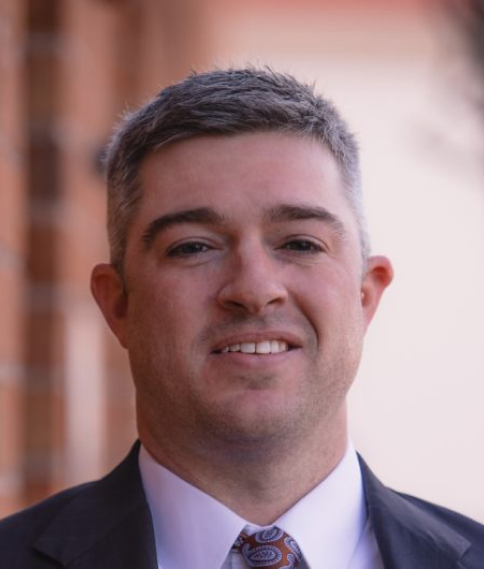
Paycheck Protection Program (PPP): How the Lawyers at Crepeau Mourges Can Help You
In response to COVID-related shutdowns and other economic issues, Congress authorized several types of relief funding through the CARES Act, as a PPP lawyers in Hanover, MD can explain. For small businesses, the Paycheck Protection Program (PPP) is the largest relief package within the CARES Act and has helped countless businesses to retain valuable employees. Assuming eligibility criteria are met, businesses can use the PPP to obtain substantial low-interest loans guaranteed by the federal government. Most importantly, if used to retain workers and pay other eligible expenses, PPP loans can be completely forgiven on a tax-free basis. For thousands of businesses, maximizing the benefits of the PPP is a necessity to avoid closure or bankruptcy.
The lawyers at Crepeau Mourges have extensive knowledge of all aspects of the PPP and we are here to help maximize the benefits available to your business. We closely monitor developments and can provide needed insight on developments affecting forgiveness and to help qualifying businesses access the second round of funding (sometimes called “PPP2” or “Second Draw Funding”).
The PPP Application: Maximizing Eligible Funding
Although the format of the PPP application has changed several times in the past year to accommodate different types of eligible businesses and rounds of funding, there are several key elements of the application. These elements include an eligibility determination, a calculation of eligible payroll costs, and certifications regarding necessity, intended use, and eligibility.
While the application is generally straightforward, the professionals at Crepeau Mourges can help to maximize available benefits and avoid common pitfalls. For instance, our lawyers can provide a review of your business information to ensure PPP eligibility based on various criteria, including (1) industry (e.g., for real estate and passive companies), (2) number of employees and alternative sizing requirements, (3) affiliation rules, and (4) other specific requirements where minimal or conflicting guidance is available. We can also provide a thoughtful review of your situation to address necessity requirements – for larger PPP applicants – and other vague requirements. With respect to the calculation of eligible payroll costs, Crepeau Mourges will work with your business or outside advisors to assemble and review required documentation. In the past, we have helped clients obtain substantial additional funding by addressing payroll reporting errors, deficiencies, and timing issues, and by explaining these issues to lenders. Crepeau Mourges works with PPP applicants to ensure proper understanding of required certifications and what impacts they may have on a business.
Documenting Proper Use of PPP Funding
Even prior to applying for a loan, our Hanover, MD PPP lawyers help PPP applicants plan for the proper documentation and use of the funds. All PPP borrowers are required to certify that funds will “be used to retain workers and maintain payroll” as well as to pay other eligible expenses. The terms of the PPP further provide that loans are only eligible for forgiveness to the extent used for certain eligible purposes. Businesses must be able to properly document that funding is spent to retain workers and pay covered expenses within the applicable covered period. New and evolving guidance regarding eligibility for Second Draw Funding for the PPP can entail further documentation to qualify for funding, particularly for the increased funding allowed for businesses in the restaurant and hospitality industries.
The lawyers at Crepeau Mourges advise clients on each of these PPP issues. For instance, we can prepare spreadsheets and other resources to help import and track expenses from payroll and financial software. We can also aid in planning on an appropriate “covered period” under the PPP – whether 8 weeks or 24 weeks. This determination can be critical in maximizing forgiveness, particularly where a business may need to terminate employees or has other financial concerns. Crepeau Mourges advises clients on the nuances related to employee retention and the calculation of full-time equivalents. As with the selection of a covered period, proper planning and documentation of this issue is a must. Many small businesses are ill-equipped to maximize the benefits of the PPP without the assistance of a lawyer versed in the rules of this important program.
Maximizing Forgiveness of the PPP Loan
Even after funding has been approved by the SBA, businesses must keep detailed records to ensure a significant benefit of the PPP: tax-free loan forgiveness. The lawyers at Crepeau Mourges have been at the forefront of these issues.
For instance, during the first round of PPP funding, unclear statutory guidance led the Internal Revenue Service to declare that forgiveness of PPP loans would result in the denial of PPP-related income tax deductions. The lawyers at Crepeau Mourges advocated for the interests of our clients as we highlighted the negative impact of this guidance and how it conflicted with congressional intent. Our thought leadership was featured by the SBA’s Office of Advocacy. See IRS Notice 2020-32: Should Taxpayers Deduct Expenses Resulting in Loan Forgiveness under the Paycheck Protection Program Despite the Contrary Guidance of the Internal Revenue Service, available at: https://advocacy.sba.gov/2020/05/07/irs-treatment-of-ppp-loan-proceeds-imposes-unexpected-costs/. As a result of continued advocacy, within the legislation that authorized Second Draw Funding for the PPP, Congress specifically overrode the highly publicized interpretation of the Internal Revenue Service. As a result, all expenses qualifying for forgiveness under the PPP are now fully deductible.
Aside from this advocacy, we have helped both small and large borrowers in the PPP prepare and submit applications for forgiveness. As with our assistance in substantiating loan applications, we have assisted clients to document payroll costs paid with PPP funding, to document retention of employees, to choose the proper “covered period” to maximize forgiveness, and to explain the scope and risks of certifications associated with the forgiveness application. The lawyers at Crepeau Mourges are dedicated to helping you understand the process and want to ensure that you maximize allowable loan forgiveness under the PPP.
Preparing for Second Draw Funding in the PPP
While many businesses have already received or are in the process of applying for loan forgiveness related to the PPP, the severe financial consequences related to COVID-19 are still omnipresent. Within the last month, Congress authorized PPP2 or Second Draw Funding for the PPP. For many businesses, the benefits of this program are both significant and necessary; however, changes to eligibility requirements heighten the need for assistance from a lawyer knowledgeable in the PPP, such as those at Crepeau Mourges.
Much like the first round of funding for the PPP, administrative guidance has been somewhat limited and continues to roll out even after businesses have begun applying for funding. While the terms of Second Draw Funding are similar to the first round of funding for the PPP, the eligibility changed to some degree. For instance, borrowers are now limited to those (1) that have no more than 300 employees, (2) already received funding through the first round of PPP and used the funds for authorized purposes, and (3) can demonstrate a reduction in gross receipts of at least 25% over a relevant time period. Specific types of businesses that generate passive income are now categorically excluded. And perhaps more importantly, for certain businesses in the restaurant and hospitality industries, Second Draw Funding for the PPP allows businesses to borrow an amount up to 3.5 times the applicable monthly payroll cost (whereas other borrowers may only borrow up to 2.5 times the applicable monthly payroll cost, as with the first round of the PPP). Recent legislation also allows certain eligible businesses to take advantage of the PPP and another program authorized by the CARES Act: employee retention credits. Crepeau Mourges continually monitors legislative and administrative updates concerning the PPP and other programs related to COVID-19. We advocate for the maximum benefits on behalf of our clients.
Enforcement Actions and Investigations of Fraud within the Paycheck Protection Program Continue to Build Momentum

To qualify for the Paycheck Protection Program, businesses were required to certify, under penalties of perjury, that they were entitled to this relief under then-existing statutory and regulatory guidance. Some of these requirements included that the applicant’s business be existing and in operation, have documented payroll, not be in receipt of another loan under the PPP, be an eligible type of business, and that “current economic uncertainty” made the loan “necessary to support ongoing operations.” Furthermore, applicants were required to submit accurate supporting documentation and make representations under penalty of perjury. To have the loans forgiven, applicants were further required to certify that the application and supporting documents were true and accurate (including tax returns and payroll summaries) and that funds obtained through the PPP were used for allowable purposes. Needless to say, not all applicants that made these representations did so truthfully.
And even though the process was hectic and many businesses were struggling to survive, the potential penalties for those submitting false information are extensive and severe – and those submitting false information are not going unnoticed. On the application itself, applicants were notified that “knowingly making a false statement to obtain a guaranteed loan from SBA” is punishable under 18 U.S.C. § 1001 and 18 U.S.C. § 3571 by up to five years of imprisonment and a fine of up to $250,000. The loan application also indicated that false representations were subject to prosecution under 15 U.S.C. § 645 (false statements to the SBA) and 18 U.S.C. § 1014 (false statements on a loan application), if the application was submitted to a federally insured institution. Aside from these potential sources of liability, those that submitted false information could also be subject to criminal penalties under a host of other federal criminal statutes, including for wire fraud (18 U.S.C. § 1343) and bank fraud (18 U.S.C. § 1344). Those convicted could be subject to restitution, forfeiture, and other consequences. Even those that did not necessarily violate a criminal statute, but may otherwise have been ineligible for the PPP, face potentially severe financial penalties.
Recent announcements from the federal government indicate that those obtaining fraudulent loans should prepare for significant consequences. For instance, in July, a former NASA employee was convicted and sentenced to 18 months in prison for submitting fraudulent applications in connection with the PPP and Economic Injury Disaster Loan Program. Aside from incarceration, the defendant was ordered to pay restitution of the amounts illegally obtained.[1] In another case, a former Olympic athlete was criminally charged for making false statements to obtain significant funding through the PPP.[2] According to that indictment, the defendant submitted eight loan applications and falsely claimed to have average monthly payroll in excess of $4,000,000. According to the indictment, the defendant did not have any payroll. In yet another case, a husband and wife pleaded guilty in connection with approximately $1.9 million in fraudulent loans submitted under the PPP.[3] In Arizona, it has been reported that a financial institution that helped process more than $2 billion in PPP loans is under a Congressional probe as a result of unscrupulous practices.[4] Clearly, this investigation is likely to have severe consequences for that institution as well as many of its customers. These are but a few examples of recent criminal cases popping up nationwide. Experts anticipate that this is the only beginning of a coming storm of PPP-related investigations and prosecutions.
If your business is currently under investigation by the federal government or made misrepresentations on either a loan application or forgiveness application, you should seek legal advice to review your exposure and potential options for addressing these issues. The lawyers at Crepeau Mourges have extensive experience with the Paycheck Protection Program, government investigations, and related proceedings. Please contact our PPP Lawyer in Hanover, MD today at [email protected] or 667.900.9912 to schedule a consultation.
[1] See Department of Justice, “Senior NASA Employee Sentenced for COVID-19 Related Loan Fraud,” July 15, 2021, available at: Justice.gov.
[2] See Department of Justice, “Taylorsville Woman Charged with Making False Statements to Obtain Millions of Dollars in PPP Loans”, December 16, 2021, available at: Justice.gov.
[3] See “Atlanta couple pleads guilty to $1.9 million in PPP fraud,” December 1, 2021, available at: https://www.cbs46.com/
[4] See “Arizona-based Blueacorn questioned in congressional PPP loan fraud investigation,” December 18, 2021, available at: abc15.com.
If you or your business is considering applying for loan forgiveness under the PPP, is in the process of applying for Second Draw Financing, or wants to discuss other government benefits related to COVID-19 (e.g., Main Street Lending, employee retention credits, and other programs), you should contact one of the advisors at Crepeau Mourges today. As PPP lawyers in Hanover, MD, we will outline your options, discuss the potential benefits of each option, and will help you to maximize this relief to ensure the continued success of your business.


